
Turkish Van
Turkish Van
Turkish Van
Many people associate cats with being afraid of water. However, did you know that there are cats that are good at swimming? That’s the Turkish Van! It is rare to see them in Japan, so if you find one at a breeder’s or an acquaintance’s house, you can consider yourself very lucky. The history of the Turkish Van is interesting and full of mysteries. Let’s explore its secrets together!
Turkish Van Basic Infomation
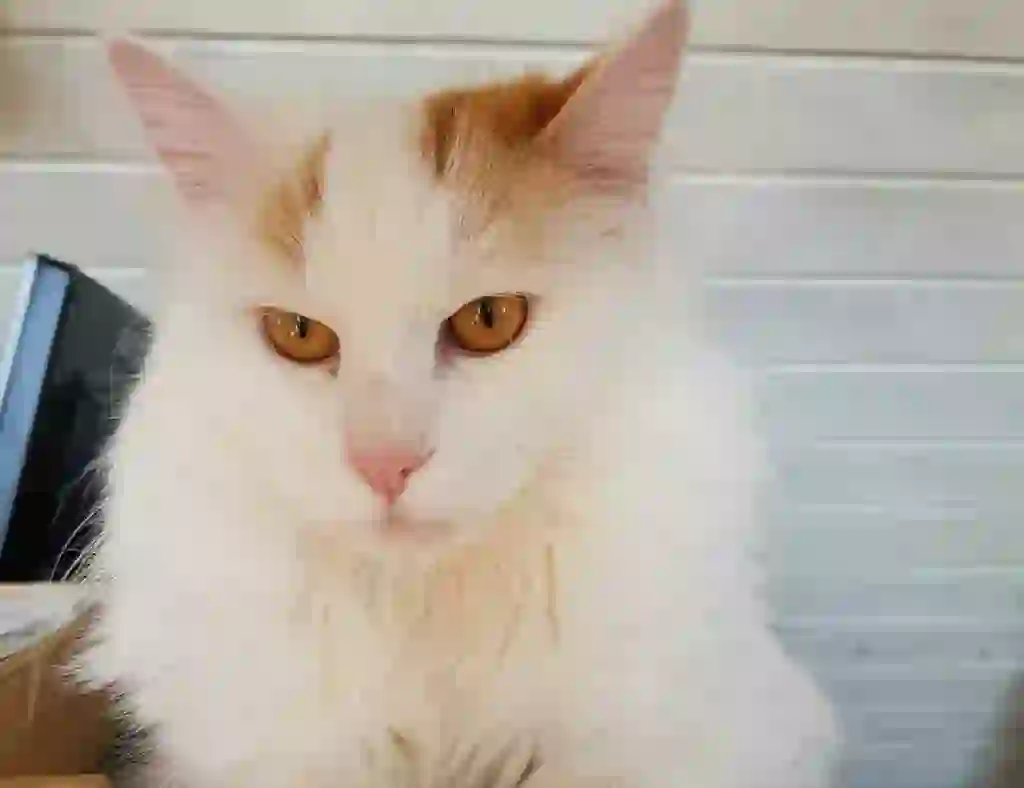
Country of origin Turkey.
Weight male: 4-6.5kg female: 4-5.5kg.
The Turkish Van is one of the oldest cat breeds, which originated naturally around Lake Van, the largest lake in Turkey’s eastern region. While the Turkish Angora was popular among the wealthy, the Turkish Van was loved by various people as a cat for the common people.
One day, two British travelers who were traveling around Lake Van saw a very rare sight. There was a cat that swam and played in the water with kittens in the lake, which was a strange behavior.
The two fell in love with these kittens and decided to take them back to England. Because they swam in the lake, they were called “Swimming Cats,” and the two began breeding them with the idea of “increasing cats with this rare habit!” They also discovered another feature: a slightly unusual pattern where only the head and tail are colored.
This feature was inherited not only by the kittens they brought back but also by the kittens born from breeding, and when they consulted with experts, it was found to be continuously inherited. As a result of this event, the two decided to continue breeding Turkish Vans for full-scale breed registration.
In 1969, it was officially recognized as a new breed by GCFF in England, and in 1985, it was registered as a breed by CFA. Currently, like Turkish Angora, conservation activities as a rare species are being promoted in Turkey. By the way, wild Turkish Vans still live around Lake Van, and you may or may not be lucky enough to see them swimming in the lake.
Turkish Van Q&A

Where does the Turkish van get its name?
Turkey means “Turkish” and Van means “Lake Van”. In other words, it was named Turkish Van because it was a cat born around Lake Van in Turkey.
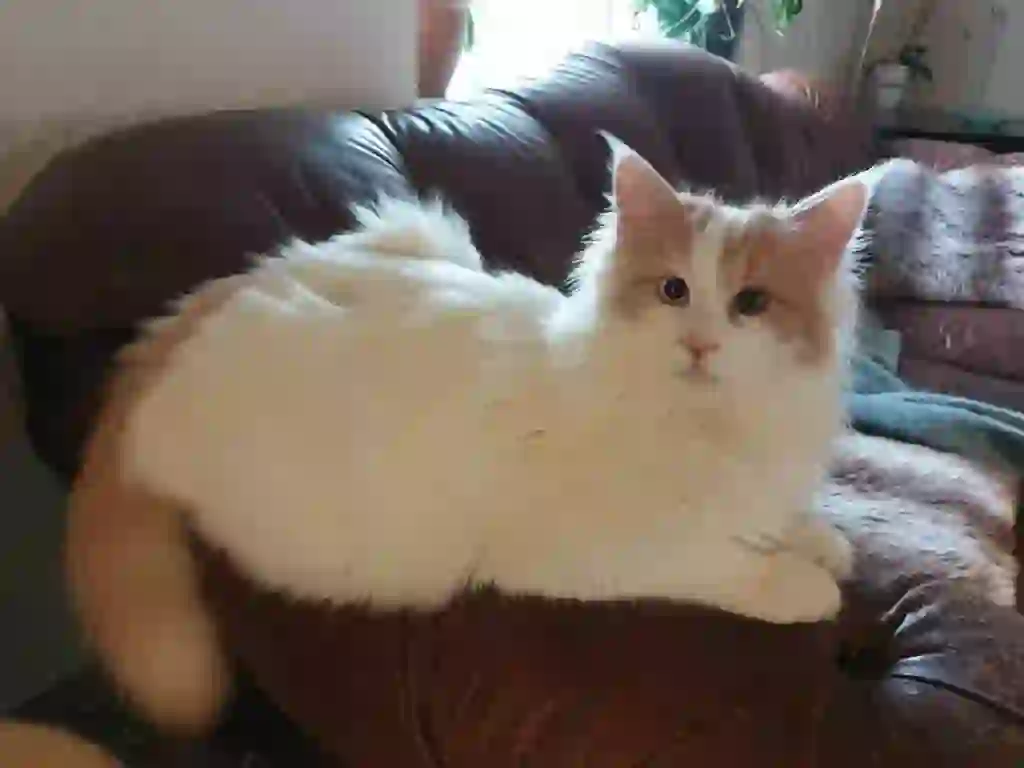
What are the color variations of Turkish vans?
There are blue, black, white, red, and cream colors.
・Calico & Bicolor. Half or one-third of the body is white, and the rest is composed of two or more colors.
・Tabby & White. Half or one-third of the body is white, and the rest is composed of stripes or spots.
There are blue, amber, and odd-eyed colors.
Turkish Van is only a long-haired breed.
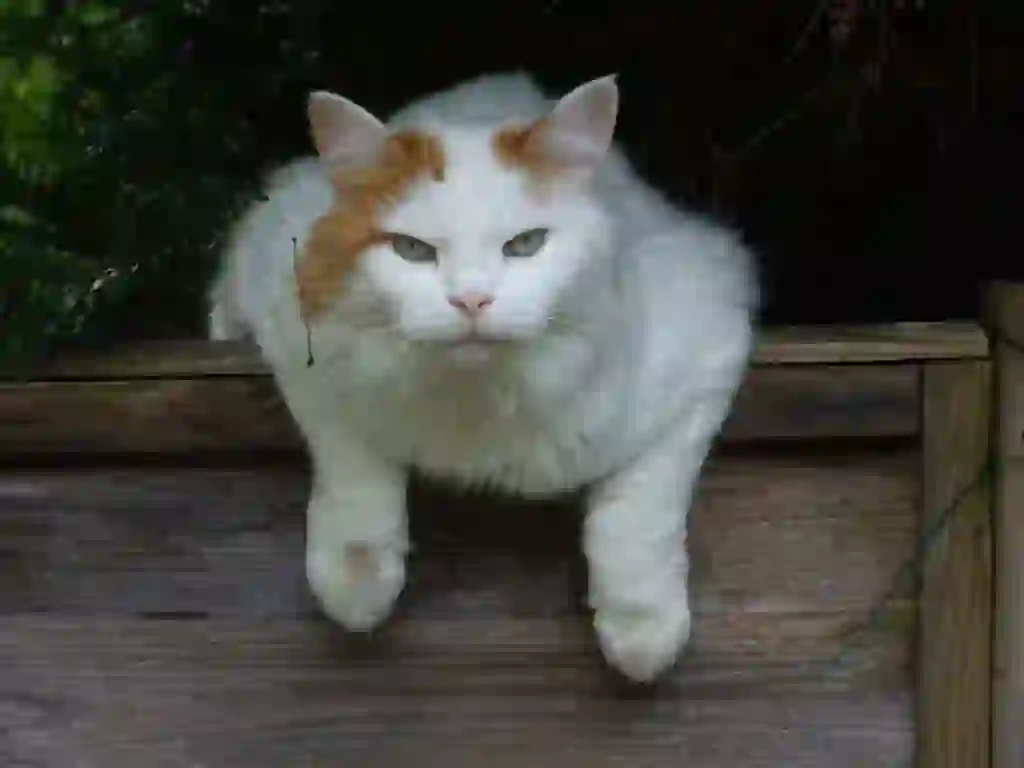
What does a Turkish van look like?
The Turkish Van has a wedge-shaped head, large oval eyes, and well-balanced ears. Its body type is called long and substantial, with slender and long legs and a muscular and robust body.
The coat is soft to the touch, like cashmere, and becomes shorter in summer and longer in winter. The tail is also cute, looking like a long, fluffy mop, similar to that of the Turkish Angora.
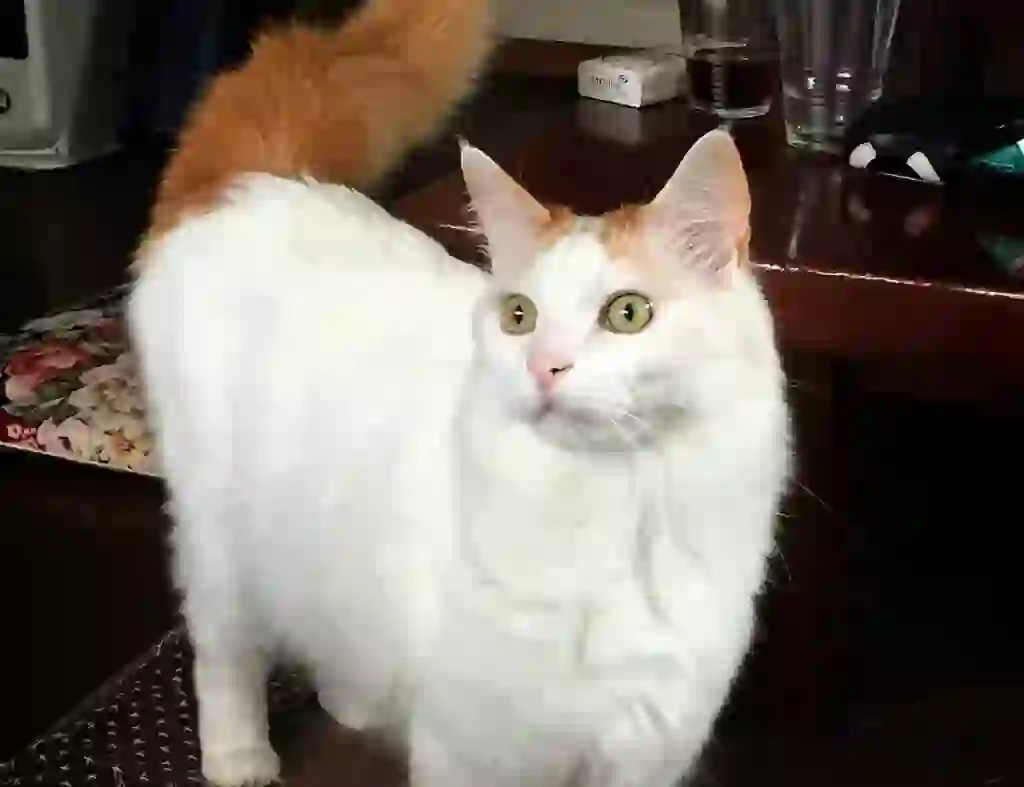
How can a Turkish van swim underwater?
The Turkish Van, also known as the “Swimming Cat,” has a secret to its swimming ability hidden in its fur. In fact, it has more sebum than other cats, and this oil plays a role in coating the hair, giving it waterproof fur that can withstand getting wet.
While there are individual differences in whether they can swim or not, it is safe to say that many Turkish Vans love water play more than other cats.
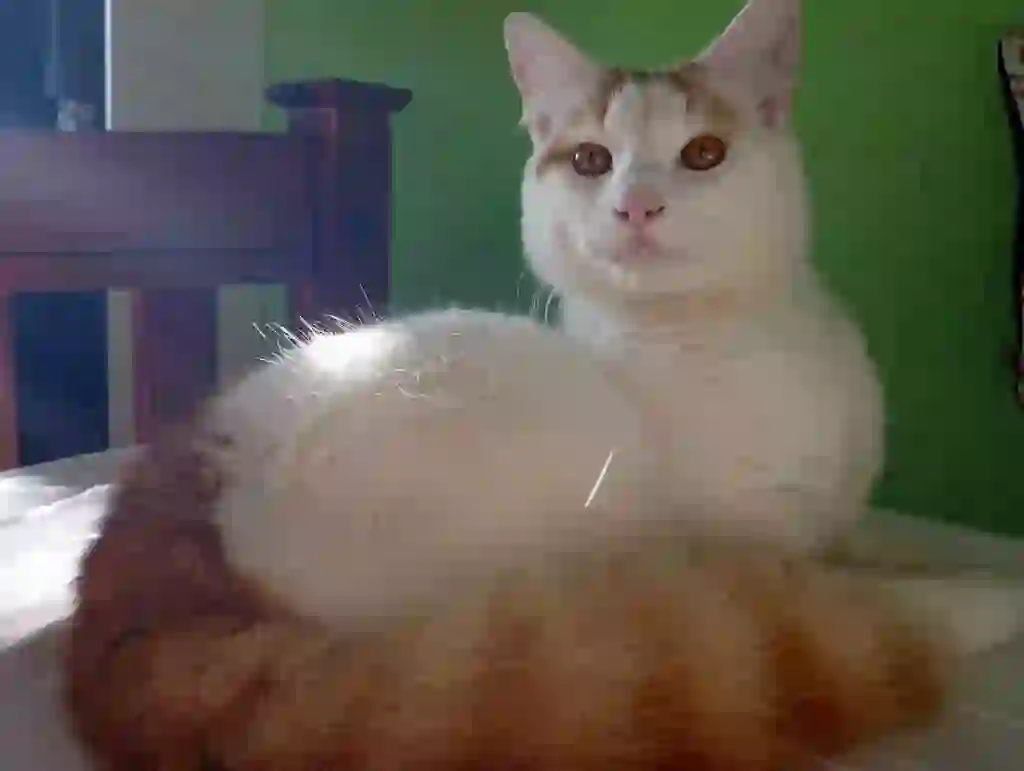
How much does it cost to buy a Turkish van?
When keeping animals, it is necessary to follow the laws established by each country. This time, I will talk about keeping Turkish Vans at home in Japan. If you purchase from a breeder or cattery, it will cost about 300,000 to 400,000 yen. The advantage is that you can check what kind of environment they grew up in and what kind of cats their parents are. Since the reliability varies depending on the breeder’s personality, it is recommended to make a reservation and visit them.
Turkish Vans are almost never seen in pet shops. Therefore, it is common to purchase them from breeders.
By the way, here are some conditions that cause price differences:
・Being a kitten. ・Having excellent pedigree. ・Having rare colors or patterns.
Although there are other conditions, if they meet the above conditions, they tend to be expensive.
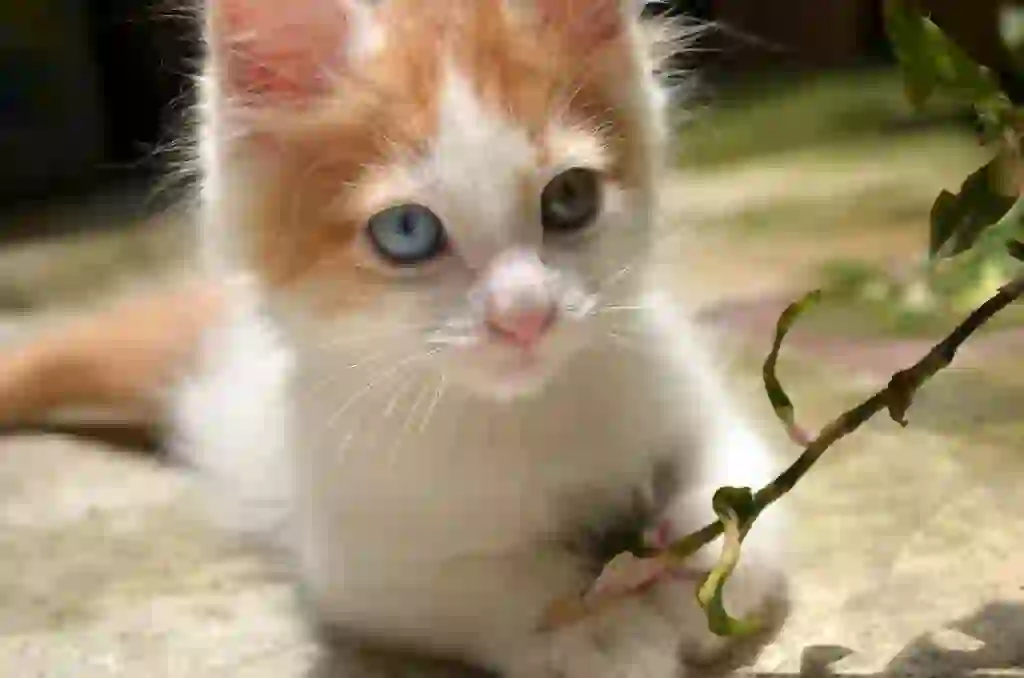
I want to know more about the personality and characteristics of Turkish vans!
The Turkish Van is a cat that was originally born from natural occurrence, so it retains a wild side. Therefore, it loves to exercise on a cat tower rather than spending time with its owner. In addition, Turkish Vans love moving toys, so it’s a good idea to play with toys when you want to communicate with them.
It is said to be an intelligent and smart cat. It is easy to train and is friendly to its owner, but it also actively approaches those who are judged to be stronger than itself, even among other animals. It has a personality that likes to make friends, which is a bit unusual for cats.
As we mentioned in the basic information, it is very rare for cats to not be afraid of water. However, some cats are afraid of water, and there is a risk of drowning for kittens. There is a possibility that they may enter places with water such as the bathroom and get wet, so be careful.
Turkish Vans are also not good at narrow spaces and may become anxious if they cannot move. Therefore, avoid keeping them locked up for long periods of time. ※When keeping animals, it is necessary to follow the laws established by each country.
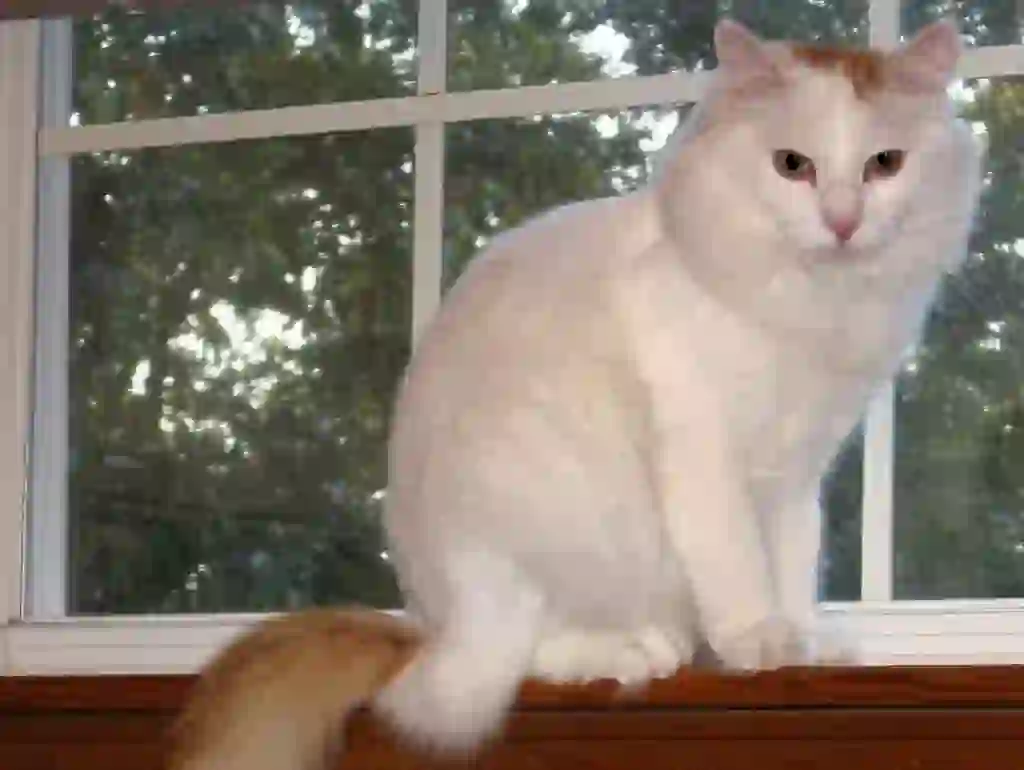
What are the diseases that Turkish vans are susceptible to?
The disease to which Turkish vans are susceptible is "Folliculosis" and, although it differs from the disease name, can cause "rejection by blood transfusion".
When cats groom themselves, they may swallow hair that can accumulate in their digestive organs such as the stomach and intestines, causing a disease called hairball obstruction. Normally, if the amount of hair swallowed is small, it will be excreted with feces. However, if the amount of hair is large, it becomes difficult to excrete.
As a result, hairballs that cannot be excreted accumulate and can only be vomited out. Cats naturally vomit hairballs once every one to several months. This is a phenomenon that can be observed even in healthy cats, so there is no need to worry excessively. However, if you observe that “the frequency of vomiting hairballs has increased” or “the behavior of trying to vomit has increased,” there is a possibility that the cat has hairball obstruction, so it is better to see a veterinarian.
Long-haired cats like Turkish Vans are especially prone to swallowing large amounts of hair, so caution is required.
In addition, it is said that hairball obstruction can be prevented by brushing by the owner. It leads to important skinship, so please try to brush regularly. However, some cats dislike brushing, so it is better to do it little by little while watching their behavior.
Turkish Vans are rare among cats in that they often have type B blood. If a cat with type B blood needs a transfusion due to an accident or illness, there is a risk of acute rejection if blood other than type B is mixed in, and in the worst case, it can lead to death. Therefore, it is a good idea to have your cat’s blood tested and know its type in advance.

What is the lifespan of a Turkish van?
The lifespan of a Turkish Van is said to be 14-16 years. The lifespan of a typical cat is 12-16 years, so if you take care of their health, they can live longer.

Would you like to become a part of the 'Animalbook.jp'?
Turn your knowledge into Q&A and share it with the world. ※Publication will be activated after purchase. Let's share information together!
Turkish Van Type of List
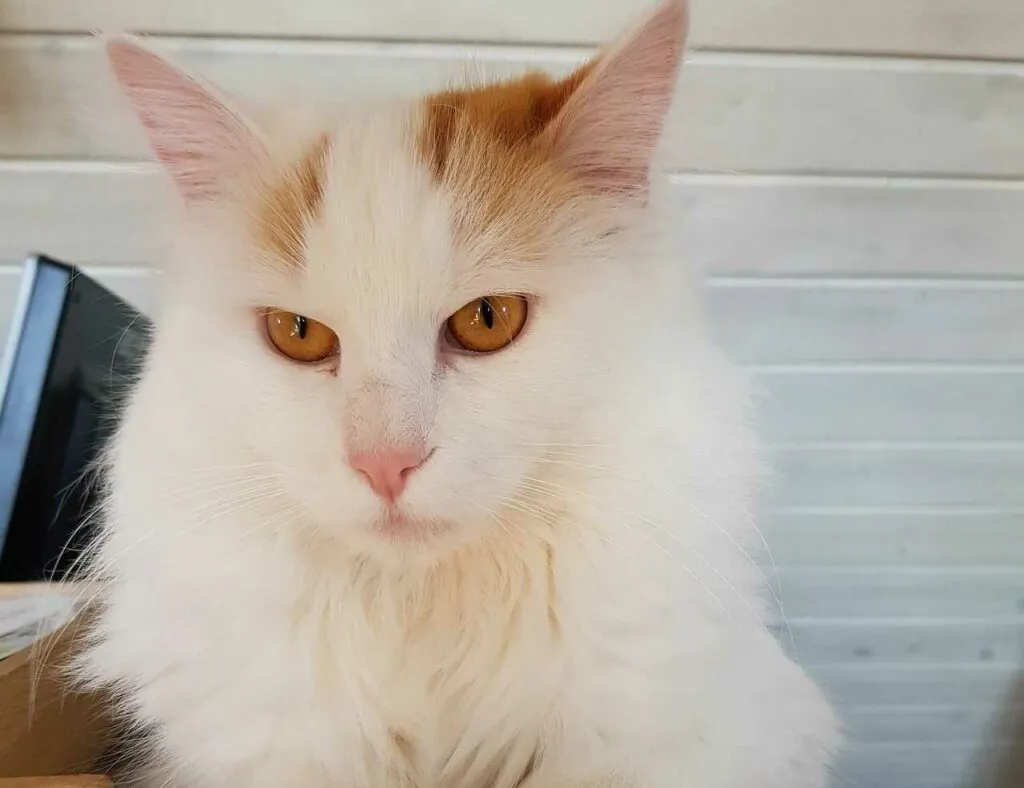
- Turkish Van
Information
Congratulations! You are the first commenter!

Create Your Favorite List!
Turkish Van
Save the animals you love! Build your own list to quickly revisit your favorites later.

Would you like to leave a comment?
※Please note: This is for the purchase of rights to post comments within the article.
Find Your Favorites!
Our shop offers a unique and attractive selection of goods themed around various animals.
Turkish Van References

- まるごとわかる猫種大図鑑 監修:CFA公認審査員 早田由貴子
- 世界中で愛される美しすぎる猫図鑑 監修 今泉忠明
- The Cat Fancier's Association, Inc. https://cfa.org/turkish-van/
- 猫との暮らし大百科 https://www.anicom-sompo.co.jp/nekonoshiori/
- みんなの猫図鑑 https://www.min-nekozukan.com/
- Pet Smile news forネコちゃん http://psnews.jp/cat/
- 子猫のへや https://www.konekono-heya.com/sitemap.html
- ねこちゃんホンポ https://nekochan.jp/
- 公益社団法人 埼玉県獣医師会 https://www.saitama-vma.org/topics/猫の遺伝性疾患について/
Turkish Van Introduction of media used

出典:https://commons.wikimedia.org/wiki/File:Nike,_turkish_van.jpg

出典:https://commons.wikimedia.org/wiki/File:Thor,_turkish_van.jpg

出典:https://pixabay.com/images/id-1581689/

出典:https://commons.wikimedia.org/wiki/File:ターキッシュバン.jpg

出典:https://pixabay.com/images/id-1725123/

Help Enrich Our Animalbook.jp with Your Media!
We are constantly looking to expand and enrich our Animalbook.jp with amazing photos and videos of animals. If you have any media that you'd like to share, please contribute and help us showcase the beauty and diversity of the animal kingdom. Your submissions will be credited and featured in our encyclopedia, reaching a wide audience of animal lovers.


















